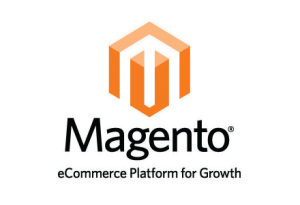Magento is an e-commerce platform written in PHP. The software was originally developed by , a US in , with assistance from .
Varien published the first general-availability release of the software on March 31, 2008. Roy Rubin, former CEO of Varien, later sold a substantial share of the company to , which eventually completely acquired and then spun off the company.
 According to the research conducted by in May 2015, Magento’s among the 30 most popular e-commerce platforms is about 29.8%.
According to the research conducted by in May 2015, Magento’s among the 30 most popular e-commerce platforms is about 29.8%.
On November 17, 2015, Magento 2.0 was released, with an aim to provide new ways to heighten user engagement, smooth navigation, conversion rates and overall revenue generation, it has well-organized business user tools speed up build up time and enhances productivity. Table locking issues have purportedly been considerably reduced, Improved Page Caching and also allows in streamlining Guest checkout process for existing users, Enterprise-grade scalability, improved performance and better code base are some of the touted benefits of newer Magento version.
Magento employs the / relational database management system, the programming language, and elements of the . It applies the conventions of and architecture. Magento also uses the to store data.
Magento is the provider of three distinct platforms, Magento Community Edition, Magento Enterprise Edition and Magento Enterprise Cloud Edition. There were also two former platforms, Magento Professional Edition and Magento Go.
Magento Community Edition
Magento Community Edition is an open-source eCommerce platform. Developers can implement the core files and extend its functionality by adding new plug-in modules provided by other developers. Since the first public beta version was released in 2007, Community Edition has been developed and customized in order to pro vide a basic eCommerce platform.
vide a basic eCommerce platform.
The current release and each of the previous historical release versions of the 1.X and 2.X version branches of Magento Community Edition are available on the Magento Commerce, Inc. website for download as singe-file downloads Development of the 2.X version branch of Magento CE is coordinated publicly on GitHub.
The latest actively supported versions of Magento Community Edition are CE 1.9.2.4 and 2.0.4 released on March 31, 2016.
Magento Enterprise Edition
Magento Enterprise Edition is derived from the Magento Community Edition and has the same core files. Unlike Community Edition, this is not free, but has more features and functionality. This edition is designed for large businesses that require technical support with installation, usage, configuration, and troubleshooting. Although Magento Enterprise has annual maintenance fees, neither Community nor Enterprise Editions include hosting. The Magento team develops Enterprise Edition by cooperating with users and third parties. Development on the 2.X branch of Magento EE is coordinated publicly on GitHub.
The latest actively supported versions of Magento Enterprise Edition are EE 1.14.2.4 and EE 2.0.4 released on March 31, 2016.
Magento Go
Magento Go was a cloud-based eCommerce solution that included web hosting by Magento Inc. It was launched in February 2011 to support small businesses by providing an option that did not require software installation. Magento Go was the least customizable platform, though it still had built-in modules and could have Magento extensions enabled for more functionality. On July 1, 2014, Magento Inc. announced that they would be shutting down the Magento Go platform on February 1, 2015.
Magento 2
Magento 2 is a new release of this eCommerce platform. It has many new and improved features, and its architecture is quite different from all the previous versions. Magento 2 was announced in 2010. It was planned for release in 2011, and its merchant beta version was released in July 2015. Since then Magento 1 and Magento 2 have existed simultaneously, but only the latter has new updates.
Features
Magento supports a Web template system which generates multiple similar-looking pages and customizes theme.
Magento provides a basic theme which sets up an eCommerce website. The theme is designed for customizing all pages by adding or editing the , and . Magento users may install themes which change the display of the website or its functionality. Without loss of content or layout of pages, themes are interchangeable with Magento installations. Themes are installed by uploading theme folders via or and applying them using the backend admin system.
Magento developers have created Magento plugins that extend its basic built-in functionality. Magento users can install modules by downloading them, and uploading them to their server, or applying a module’s Extension Key through Magento Connect Manager.
Magento allows users to integrate several different domain names into one control panel and manage more than one storefront at a time from a single admin panel.
“Imagine eCommerce” conference
“Imagine eCommerce” is the annual Magento eCommerce conference that has run since 2011. The first event was held in February 2011 in Los Angeles with more than 600 Magento merchants, partners, and developers. The goals of the “Imagine eCommerce” are sharing ecommerce ideas and providing networking opportunity sessions.
Certification
There are four different Magento certifications. Three of them aim to prove developers’ competency in implementing modules; one (Certified Solution Specialist) targets business users (consultants, analysts, project managers). Magento Front End Developer Certification is mainly focused on improving the user interface (UI) of built-in applications. This certification is related with templates, layouts, Javascript, and CSS. Magento Developer certification is geared toward back end developers who implement the core modules. The Plus certification tests deep understanding of Magento Enterprise modules and the entire architecture.


